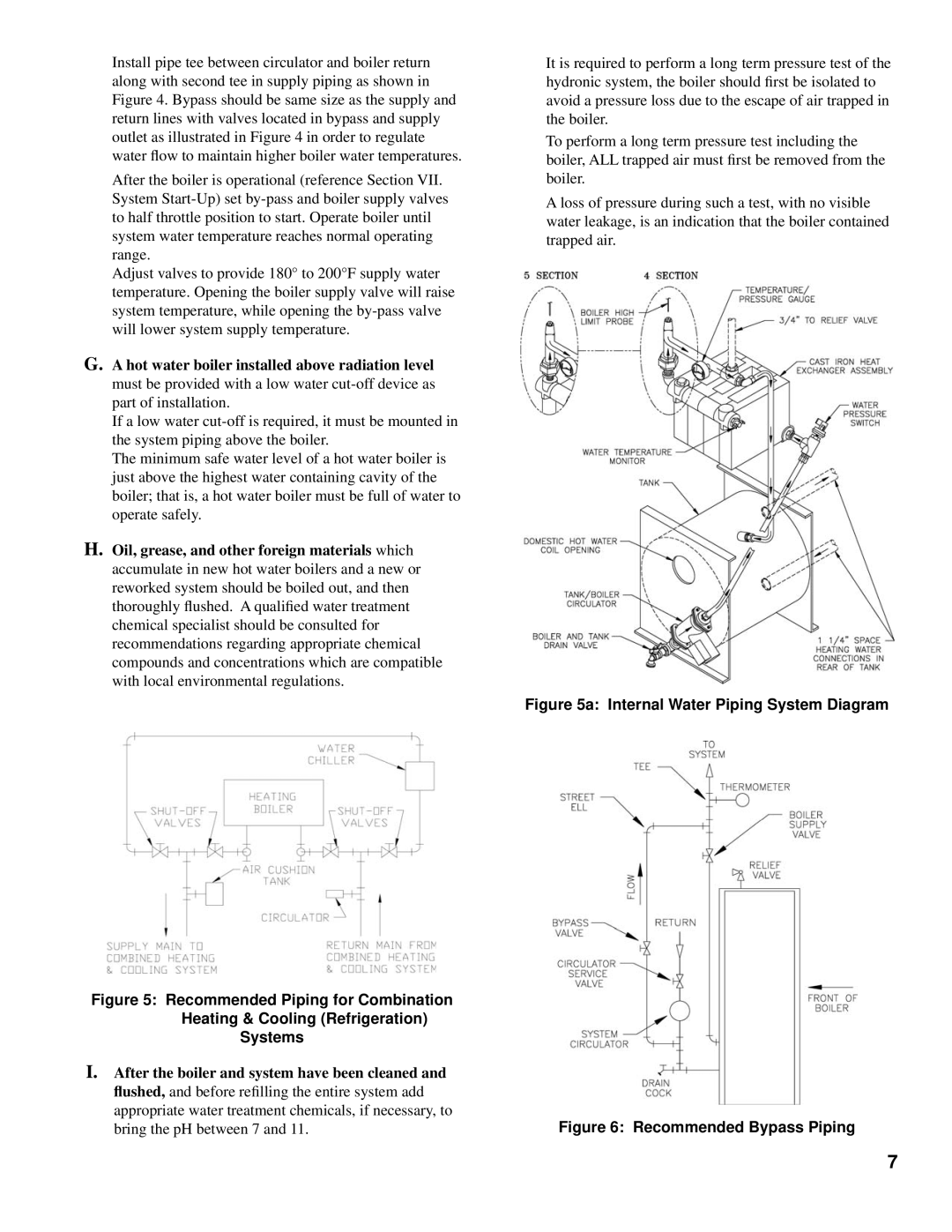
Install pipe tee between circulator and boiler return along with second tee in supply piping as shown in Figure 4. Bypass should be same size as the supply and return lines with valves located in bypass and supply outlet as illustrated in Figure 4 in order to regulate water flow to maintain higher boiler water temperatures.
After the boiler is operational (reference Section VII. System
Adjust valves to provide 180° to 200°F supply water temperature. Opening the boiler supply valve will raise system temperature, while opening the
G.A hot water boiler installed above radiation level must be provided with a low water
If a low water
The minimum safe water level of a hot water boiler is just above the highest water containing cavity of the boiler; that is, a hot water boiler must be full of water to operate safely.
H.Oil, grease, and other foreign materials which accumulate in new hot water boilers and a new or reworked system should be boiled out, and then thoroughly flushed. A qualified water treatment chemical specialist should be consulted for recommendations regarding appropriate chemical compounds and concentrations which are compatible with local environmental regulations.
Figure 5: Recommended Piping for Combination Heating & Cooling (Refrigeration)
Systems
I.After the boiler and system have been cleaned and flushed, and before refilling the entire system add appropriate water treatment chemicals, if necessary, to bring the pH between 7 and 11.
It is required to perform a long term pressure test of the hydronic system, the boiler should first be isolated to avoid a pressure loss due to the escape of air trapped in the boiler.
To perform a long term pressure test including the boiler, ALL trapped air must first be removed from the boiler.
A loss of pressure during such a test, with no visible water leakage, is an indication that the boiler contained trapped air.
Figure 5a: Internal Water Piping System Diagram
Figure 6: Recommended Bypass Piping
7
